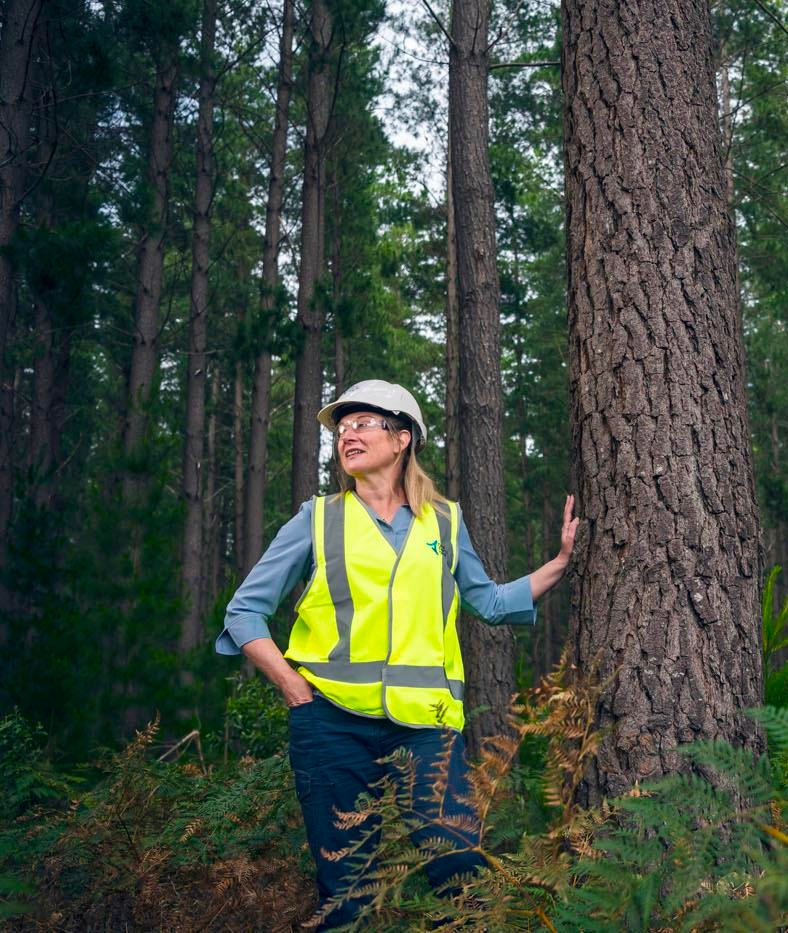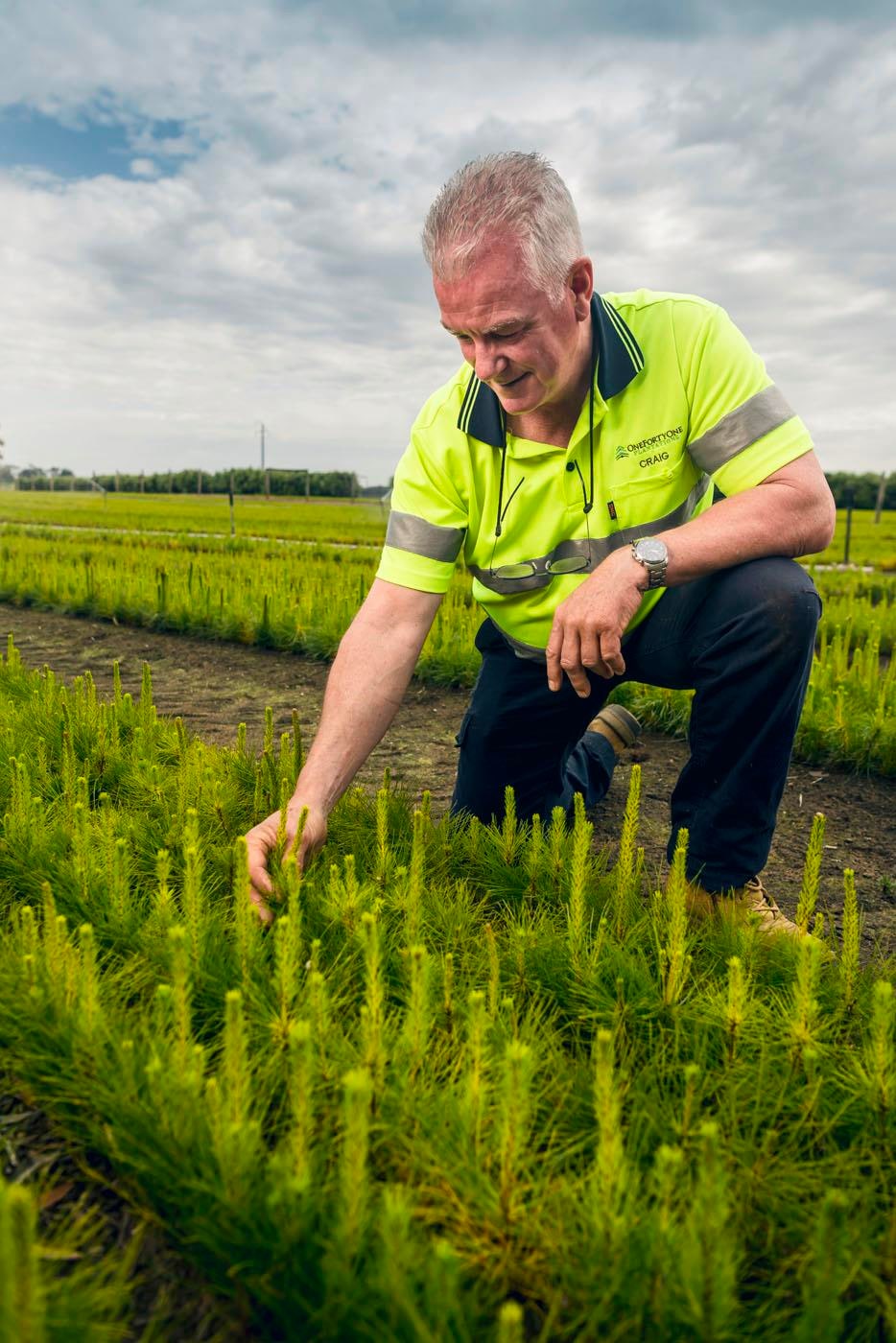
Careers in Forestry
Foresters are knowledgeable and skilled scientists and professionals. A career in forestry offers a variety of specialisations within the sector. For example, foresters work to:
- minimise or mitigate soil erosion
- conserve water catchment values
- provide suitable habitats for native fauna and protect rare and endangered plants and animals
- restore degraded forests and improve ecosystem health
- integrate traditional aboriginal ecological knowledge and management systems
For more detailed insight on the day-to-day jobs of a forester go to What Do Foresters Do?
In Australia, foresters undertake a whole-of-landscape approach to land management. This means foresters engage with farmers, engineers, water supply and soil conservation officers, ecologists and Aboriginal and Torres Strait Islander people to achieve more holistic, sustainable systems of land management.
Above all, foresters have an interest in ecological science, passionately care for the environment and are interested in promoting and protecting forest ecosystems for the long term.
Who Employs Foresters?
Many foresters are employed by government forest services or national park and wildlife agencies, as almost all public forests are managed by states and territories. An increasing number of foresters are employed by private companies, especially for plantation management.
There are many independent consultant foresters who work with farmers on plantation establishment or management, in landcare activities, with mining companies, or with water catchment agencies.
If you are looking for a career in forestry, the IFA recommends two websites for career and jobs information:
Growing Careers is an industry initiative resourced by Forest and Wood Products Australia Ltd (FWPA) on behalf of the forest and wood products industry and the Australian Government.
CareerHarvest is an initiative of the Australian Council of Deans of Agriculture.
Forestry Skills
There are many skills you can learn as a forester, including:
- “reading the bush” – being able to look at a forest and determine its history, health and needs
- GIS, remote sensing, aerial photo interpretation and the use of drones, data loggers and other equipment
- strong skills in community engagement, collaboration and conflict management
Forestry Specialisations
A career in forestry offers many pathways. Below are just a few of the areas that foresters may specialise in.


– Conservation of water, plants and animals
Underpinning all work in forestry is a focus on the conservation of water catchment values, maintaining biodiversity across the landscape and ensuring rare and endangered plants and animals are protected. This requires good monitoring programs and strong collaboration with other agencies and universities.
– Silviculture
Silviculture is the practice of establishing and sustainably managing forests. This includes thinning, pruning and weed control, as well as production of seed for new forests, and the establishment and management of tree nurseries.
Successful silviculture relies on knowledge of tree growth and growth rates under different conditions. Foresters record and monitor growing stock in forests to forecast future growth, estimate community demand for forest products and identify the best strategies for management. The latter involves advanced modelling techniques and computer-based decision tools.
– Fire management and prevention
Foresters plan and implement strategies for fire prevention, detection and suppression. Within fire management, foresters also consider the protection of fauna habitat, regeneration of new forests, the needs of communities and the protection of cultural heritage and other important assets.
– Carbon and natural capital accounting
Foresters work to appropriately value natural capital (parts of the living world that benefit people) and the ecosystem and other services it provides. Forest accounting looks at the value of ecosystems not only for tangible commercial forest products, such as timber or honey, but also carbon sequestration, clean water and biodiversity.
– Farm forestry
Farm forestry can involve working with farmers to reverse land degradation, such as that caused by soil erosion and salinity, by restoring native forest corridors and establishing plantations.
Foresters work closely with the agricultural sector to assist with private management of plantations and systems of plantation establishment on farmland.
– Timber Harvesting
Foresters organise and control timber harvesting for sawn timber for house construction, furniture manufacture, floors and decking, plywood, particleboard, poles, posts, fuel wood, and paper pulp.
Timber harvest planning takes into consideration requirements for environmental protection (including protection of threatened species), soil and water conservation, managing fire risks, and provisions for regeneration of the forest. Foresters also take into account market requirements and economics.
Harvesting involves a significant amount of forest engineering skill to locate and construct roads, bridges and other necessary infrastructure.
Foresters can be involved in all stages of harvesting, from pre-planning, supervising operations, regulating, processing, utilisation and marketing of forest products.
– Research
All forest management is supported by scientific research. Extensive, wide-ranging studies are undertaken by forest management agencies, CSIRO, cooperative research centres and universities. Often research activities are associated with extension work, taking the results to government agencies, private forest companies or the agricultural community.

